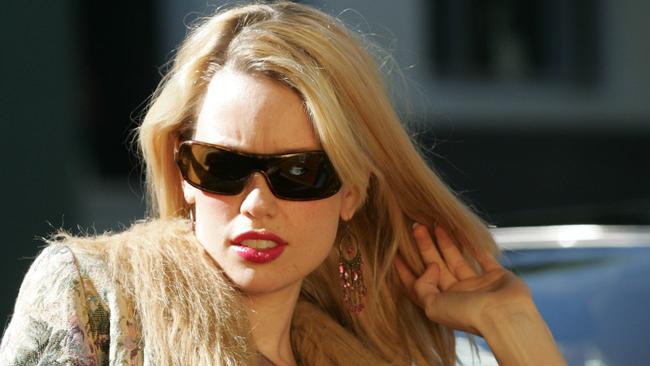How the rich use discretionary trusts to pay less tax
LABOR believes it can claw back billions from cracking down on trusts the wealthy use to pay less tax — here’s how it works.

LABOR believes it can claw back $17 billion over 10 years from cracking down on a product that only a “lucky few” can take advantage of — discretionary trusts.
On the weekend Opposition leader Bill Shorten unveiled a plan to tax payments to adults from discretionary trusts at a minimum of 30 per cent.
“The lucky few, riding the business end of the tax system are able to opt out of paying taxes,” Mr Shorten told reporters in Sydney on Sunday.
“Nice deal if you can get it! The real challenge here is that we want to create one system for Australians.”
There are about 642,000 discretionary trusts operating in Australia and Labor estimates its policy will affect 315,000 of these — but 98 per cent of taxpayers will see no change.
Left-wing think tank The Australia Institute says there has been an explosion in the use of discretionary trusts in recent years and they now hold more than $3.1 trillion.
Income from trusts overwhelmingly flows to the wealthiest Australians, director Ben Oquist told reporters, with more than half going to the top 0.5 per cent of the population.
“It’s time something was done about them. This is a modest step in the right direction by Labor today,” he said.
Here’s how it works.
WHO CAN SET UP A TRUST?
There are many different types of trusts but Labor’s measures particularly target those called a “discretionary trust”.
Normal wage or salary earners can’t set up these types of trusts to put their income into, it can only be used for business income or have some other kind of asset income. For example, if your trust owns a number of investment properties you can distribute the income from them.
HOW IS IT DONE?
Firstly, if you want to set up a trust you generally visit a lawyer and accountant to get the process started. A company usually acts as a trustee and so they organise for one to be bought.
A trust deed is created that will name certain people as beneficiaries. You can name someone in particular ie Joe Bloggs or you can name a class of people (which is specific enough to be identified), for example, your children. However, only adults over the age of 18 years old benefit from tax arrangements as children can only receive $416 a year tax free and the rest is taxed at penalty rates as high as 66 per cent.
WHY DO THE WEALTHY BENEFIT?
You may have heard Labor talking about “income splitting” and this is where high income earners can use trusts to reduce the amount of tax they pay.
Under the trust system the company that acts as the trustee can take income the trust earns and distribute this to beneficiaries. It decides how the income is split, so it can give $100,000 to one beneficiary and nothing to the others, and this can change from year to year.

When understanding the benefits, it’s easiest to consider the case of a beneficiary who is a university student, elderly parent or a stay-at-home mother who doesn’t earn any income.
If the trustee choses to give this type of beneficiary $100,000, they will pay $24,632 in tax because the income is taxed at a staggered rate.
No tax is paid on the first $18,200, then 19 per cent is paid on income up to $37,000, 32.5 per cent up to $87,000 and 37 per cent on anything between that and $180,000.
Any income over $180,000 is currently taxed at 47 per cent, which is equal to the top marginal income tax rate.
This is a benefit for a high income earner as by assigning the income to a person with little or no income, it means they don’t have to pay tax on the first $18,200 and then the rest of the money will be taxed at staggered rates lower than the 47 per cent top marginal tax rate they would normally pay.
If they have quite a few family members to split the income, it becomes even more lucrative.
They can also give the income to a company and pay tax of just 30 per cent.
SO WHAT DOES LABOR WANT TO DO?
On the weekend Labor announced a policy that would set a tax rate of at least 30 per cent on trust distributions.
The 30 per cent level is just below the second marginal income tax rate, paid by people earning less than $87,000 a year.
Trust arrangements used by farmers, charities and deceased estates would be exempt.
Overall, Tax Institute senior tax counsel Robert Deutsch said he thought the changes were better directed and targeted than previous reform suggestions, but he didn’t understand why farmers were being exempted and he was also concerned the measures would impact genuine small businesses.
Mr Deutsch told news.com.au that small businesses use discretionary trusts because assets in a trust cannot be seized if the business goes bankrupt. They also get a capital gains tax discount.
Mr Deutsch said the changes would hit business on the low end of the scale in particular.
For example, he said a trust that was only distributing about $100,000 in income to just one beneficiary would be required to pay $30,000 in tax under Labor’s proposal. This is much higher than the $24,682 they pay now (not including the Medicare Levy).
“This is unfair on small businesses and there is a surprisingly large number of businesses that do conduct their businesses through trusts because of asset protection,” he said.
“Unfortunately those small businesses, which are genuinely small and operate using a trust deed, will be caught up in this ... and for them this is a huge tax hike depending on their circumstances.
“This is a genuine problem for Labor with this policy.”
Labor has suggested 198,000 small businesses will be impacted but many are self-classified and not actual active businesses, Fairfax has reported.
Mr Shorten told ABC on Monday that Labor was not planning to prevent trusts being used legitimately to protect assets or for succession planning.
But Prime Minister Malcolm Turnbull accused Mr Shorten of making one attack after another on business.
“All he provides is every day another outburst about inequality and the targets for his outbursts is inevitably hardworking Australians in small businesses,” he told ABC radio from Perth.



